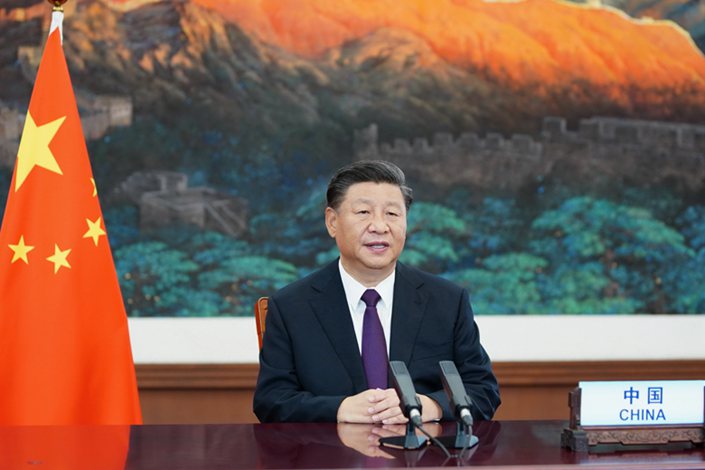China Will Be Carbon Neutral By 2060, President Xi Says

China has said it will achieve net zero carbon emissions before 2060, in a bold pledge by the world’s largest greenhouse gas emitter to tackle global heating and climate change.
In a virtual address to the U.N. General Assembly in New York, President Xi Jinping said China aimed to reach peak emissions before 2030 and become “carbon-neutral” within the three ensuing decades, adding that the Covid-19 pandemic was a reminder of the need for humankind to “launch a green revolution.”
“The human race cannot ignore the warnings of nature over and over again,” he said, adding that the 2015 Paris climate accord was the “minimum” required to protect the environment.
The audacious commitment to pivot the world’s second-largest economy onto a low-carbon footing is an important marker in the fight against climate change. China produced 28% of the world’s carbon dioxide emissions last year, according to a report by the Global Carbon Project. Slashing emissions of the heat-trapping gas is crucial to slowing down global heating.
China’s pledges came as U.S. President Donald Trump assaulted the country’s environmental record in his own speech to the assembly, saying that “those who attack America’s exceptional environmental record while ignoring China’s rampant pollution are not interested in the environment. They only want to punish America. And I will not stand for it.”
China appears to be mulling more ambitious decarbonization targets as part of its next five-year plan, which will shape state policy through 2025. The country previously said its emissions would peak around 2030, but had refused to set a specific date due to its status as a developing nation. Public discussion about carbon neutrality had been scarce.
On Tuesday, Xie Zhenhua, China’s top climate change advisor, said the country would “do more” to cut greenhouse gas emissions by 2050 in updated pledges to be submitted to the U.N. later this year.
“China is definitely going to launch a very powerful low-carbon development target,” Xie, who served as China’s chief negotiator at the U.N. climate talks between 2007 and 2018, said in an online discussion with former Australian Prime Minister Kevin Rudd.
Although the announcement of the 2060 target was a “massive pledge” that will require a dramatic overhaul of how people in China live, work and produce food, the realities of climate change mean that China must achieve carbon neutrality “as close to 2050 as possible,” said Li Shuo, a climate campaigner at Greenpeace East Asia.
Beijing needs to give more details about how it will implement the pledges, he added. “How much earlier can China peak its emissions? How will it reconcile carbon neutrality with its ongoing coal expansion? These are hard questions that demand a better response from Beijing.”
Still, Xi’s speech sent a strong signal that China is willing to be bold in the fight against climate change, Li said. “Think about the massive investment needed to fulfill this vision and the daunting planning to manage the transition. Chinese politicians are known for their pragmatism, but last night showed us the audacity they are willing to embrace. Others should take note.”
Contact reporter Matthew Walsh (matthewwalsh@caixin.com) and editor Joshua Dummer (joshuadummer@caixin.com)
Download our app to receive breaking news alerts and read the news on the go.

- PODCAST
- MOST POPULAR






